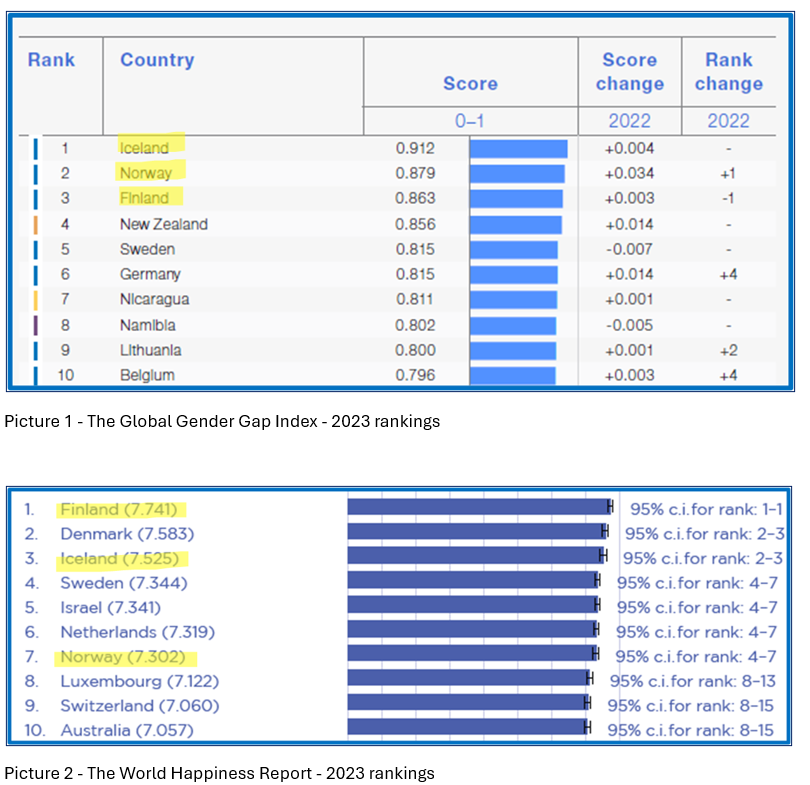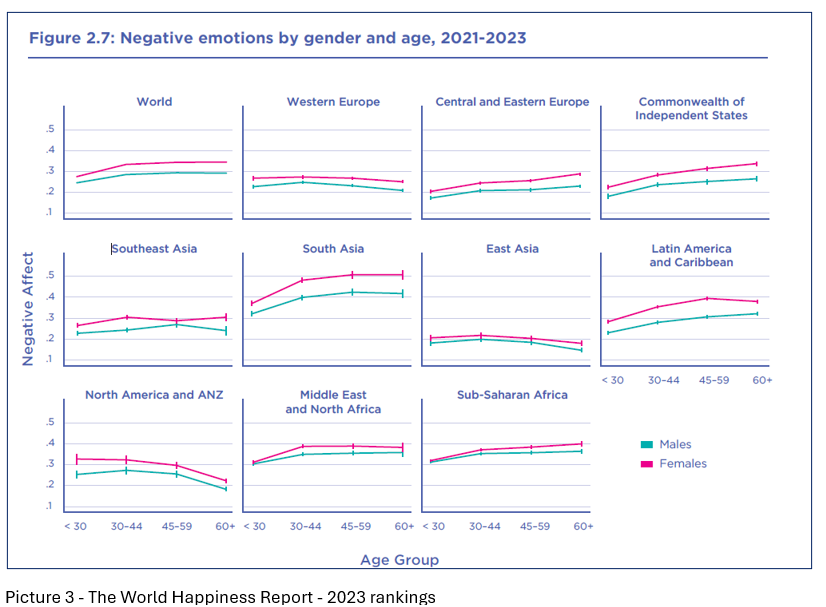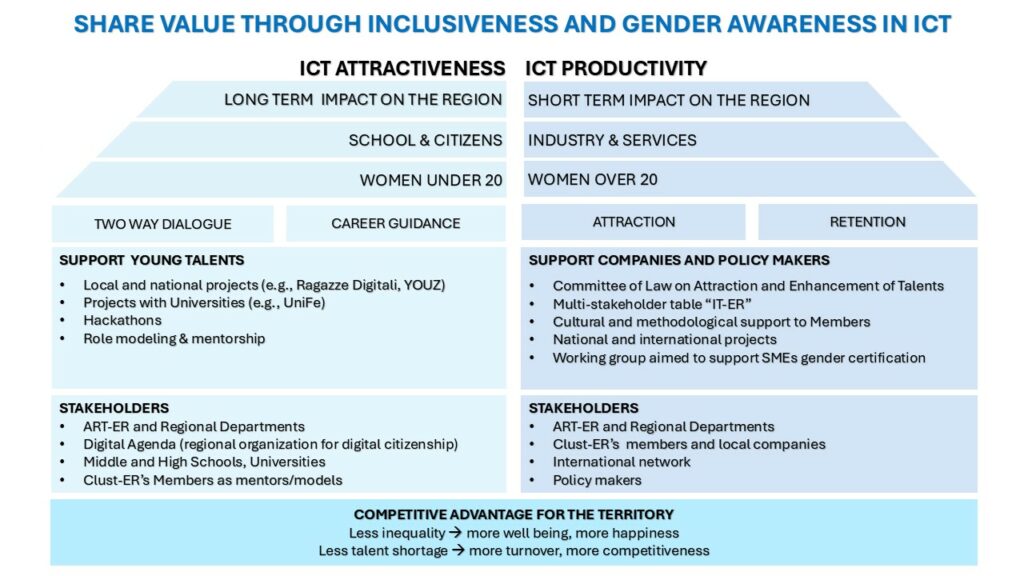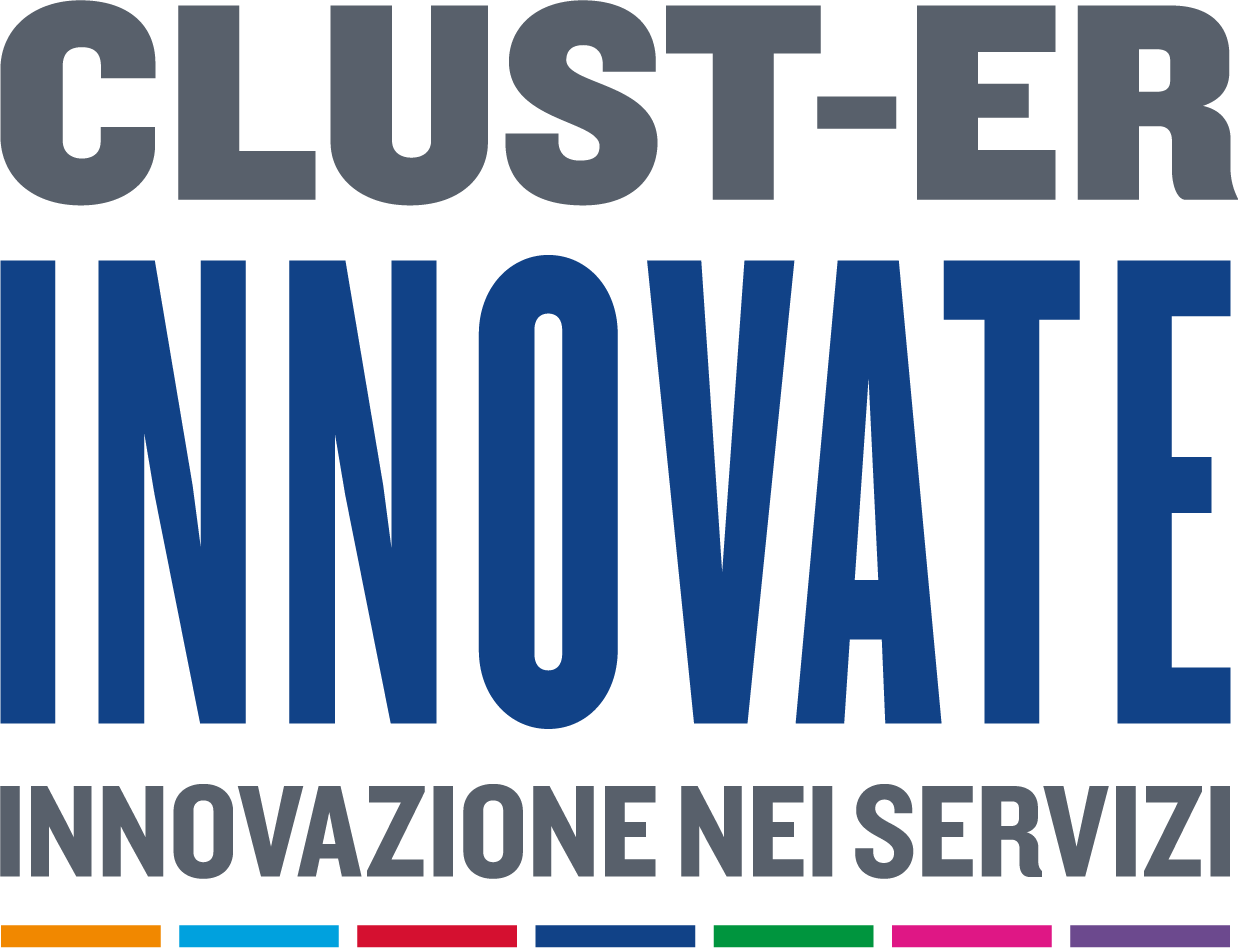There is a quote from William Golding, British novelist and Poet, that sounds more or less like this: “Whatever you give a woman, she will multiply and enlarge what is given to her. If you give her a house, she will give you a home. If you give her groceries, she will
give you a meal. If you give her a seed, she will give you a baby.”
So, let’s try to replace the word woman with talent. Whatever you give a talent, you will receive it multiplied.
So we do know that we have lots of benefits in including women in our political, social and industrial life, such as if we look to companies
• More profit and success
• Less absences due to sickness
• Increased well-being
• Reputation: positioning as an important actor for society
• Increased innovation by taking advantage of different perspectives
• Strengthened employer branding
• Retain and attract talents
• Be prepared for the EU’s new legislation regarding a sustainable work environment (e.g. fines for wage gap >5%)
How can we measure the benefits for a territory? How can a Cluster be a real multiplier of value?
The American economist Stiglitz , who won in 2021 the Nobel Price in Economics, told “GDP (Gross Domestic Product) is a poor way of assessing the health of our economies and we urgently need to find a new measure”
We all think that the new measure should deal with environment, inclusion, well being and not only economics. So, let’s try to focus on two different perspectives:
The World Happiness Report is a publication of the Wellbeing Research Centre at the University of Oxford, with several international partners. It reflects a worldwide demand for more attention to happiness and well-being as criteria for government policy. It reviews the state of happiness in the world today and shows how the science of happiness explains personal and national variations in happiness.
The Global Gender Gap Index annually benchmarks the current state and evolution of gender parity across four key dimensions (Economic Participation and Opportunity, Educational Attainment, Health and Survival, and Political Empowerment). It is the longest-standing index tracking the progress of numerous countries’ efforts towards closing these gaps over time since its inception in 2006.
As we can see in the pictures, the first three Countries in one index are within the first 7 Countries in the other. Is this a coincidence? Better gender equality is a key factor in Countries’ happiness?

If we look deeper inside the the World Happiness Report (2023) we can focus on negative emotions in the years 2021-2023 by age, separately for females and males. For the world as a whole, the average frequency of the selected negative emotions is higher for females than males, with the gender gap growing slightly from the young to the old. If we focus on EU, females start to report lower life satisfaction than males at around age 12 and the gap further expands from age 13 to 15. In 2021-2023 negative emotions were more prevalent for females than males in every region , with the gender gap being larger at higher ages almost everywhere
So, in order to be real multiplier of Value Clust-ERs must focus both on tangible and intangible factors.

ICT ATTRACTIVENESS
The activities related to this section are long term impact activities, related to school and citizens: they are designed for women under 20. In this section we focus on fostering a two-way dialogue with younger talents and support them with career guidance. We work on
– Local and national projects (e.g. Ragazze Digitali, YOUZ)
– Projects with Universities (e.g. UniFe)
– Hackathons
– Role modeling & mentorship
In order to reach the better results, we engage many stakeholders:
– ART-ER and Regional Departments
– Agenda Digitale (regional organization for digital citizenship)
– Middle and High Schools , Universities
– Members as mentors
ICT PRODUCTIVITY
The activities related to this section are short term impact activities, related to industry and services: they are designed for women over 20.
In this section we focus on fostering talents attraction and retention in our regional companies (with a deeper focus on SMEs). So we have a direct relationship with companies and policy makers working on:
– Committee of Law on Attraction and Enhancement of Talents
– Mult stakeholders table “IT-ER”
– Cultural and methodological support to Members
– National and international projects
In order to reach the better results, we engage many stakeholder
– ART-ER and Regional Departments
– Clust-ER’s members and local companies
– International network
– Policy makers

What it means to us to be a multiplier of value – Some examples
So even the Cluster must be a value multiplier by connecting different organizations and points of views. We must be a two-way amplifier channel between policy makers and companies, supporting especially SMEs in creating a different culture in gender equality and inclusion.
For example, we can be a channel for international initiatives such as the DEBUTING Interreg Project lead by ART-ER on the Italian side, that involves 11 EU partners and that will develop (during 2023-2027 time range) many actions in order to DEvelope BUsiness Through INclusiveness and Gender awareness.
The project has some deliverable:
Mapping and analysis of Clust-ER and SME needs
Collection and exchange of good practices through study visits and workshops
Definition, in agreement with the Emilia-Romagna Region, of actions and measures to improve the identified policy instrument
Communication and dissemination activities
On the first delivery, ART-ER has already mapped about 70 projects run by public organization and is mapping some projects run by international companies. The next step is about mapping SMEs projects: needs, difficulties and obstacles. As Clust-ER Innovate, we will support it with a project run by our working group called “Talents & Skills” aimed to promote competitiveness through gender equality in ICT SMEs. We want to investigate the status and the needs on
– Horizontal equality (by departments)
– Vertical equality (by levels of responsibility)
– Work-life balance measures (flexible hours, remote working, agile working, care leave…)
– Internal equality policies (plans, commissions, training and equality protocols)
– Best practices from other developed EU Regions
The project will involve some of our members and some external stakeholders, in order to make a real picture of the current regional situation for ICT SMEs ad to share ideas in order to design the projects of the next years in the most useful ways on two sides
– engaging SMEs in implementing best practices
– be a channel with public authorities sharing ideas for territorial attraction
Sources
https://www.weforum.org/publications/global-gender-gap-report-2023/digest/
Creating Shared Value : How to reinvent capitalism and unleash a wave of innovation and growth by Michael E. Porter and Mark R. Kramer (Harvard Business Review Jan-Feb 2011)
Fortin, N., Helliwell, J.F., & Wang, S. (2015) How does subjective well-being vary around the world by gender and age? In J. F. Helliwell, R. Layard, & J. Sachs (Eds.), World Happiness Report 2015 (pp. 42–75). New York: SDSN.
Montgomery, M. (2022). Reversing the gender gap in happiness. Journal of Economic Behavior & Organization, 196, 65-78.

